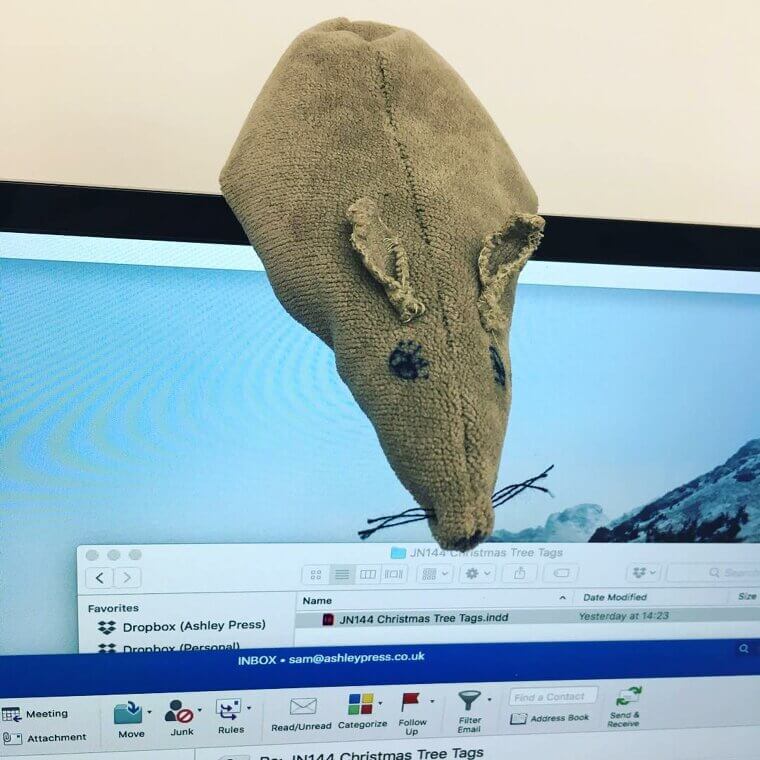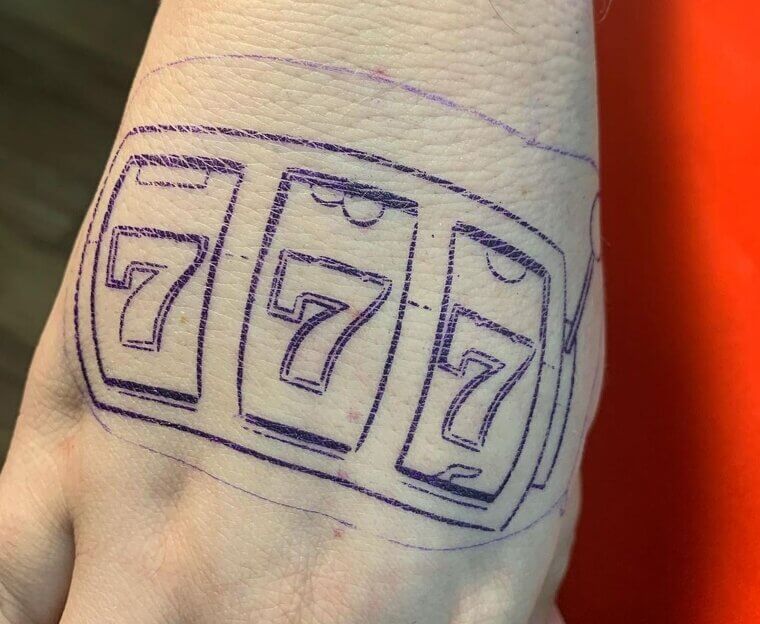Afraid a Colleague Will Call You Out in a Group Meeting? Sit Next to Them
For most people, there's nothing worse than heading into a meeting room with a colleague you don't get along with. Because of this, you often sit as far away from them as possible to create distance between you. But one thing you might not realize is that this distance can actually work against you, as it gives your colleague a chance to gang up on you with a group of people around them. This "herd defense" makes them feel more comfortable and confident in coming for you.
By going against your instinct and sitting right next to the person you don't like, you can actually stop them in their tracks. Psychologists explain that they're less likely to gang up on you when you're right next to them.
Listening Without Asking Questions Will Get You More Information
Most people assume that the only way to garner information and insight into someone's plans, thoughts, or feelings is to have a two-way conversation. And while there's nothing wrong with asking questions or giving advice when someone asks for it, sometimes there's more power in listening than talking - especially if someone is reluctant to open up. By simply listening rather than probing, you create a space of trust that can ultimately work in your favor.
In fact, there's absolutely no need to be pushy, as this can actually work against you. By simply staying quiet and listening, with bodily cues that show you're really invested, the other person is more likely to open up and keep talking and talking.
If You Ditch Your Expectations, You'll Enjoy It More
William Shakespeare said that 'expectation is the root of all heartache,' and he was right. When you go into a situation with high expectations, you run the risk of dictating what happens instead of letting it go with the flow. This can leave you feeling unfulfilled and ruin your experience as a whole. So, you need to let go of these expectations, open your mind, and simply ride the wave instead.
By having an open mind, you also open yourself up to new experiences that you may have never considered when held back by these expectations. In fact, you'll thank yourself for it.
Doing an Unusual Task Can Help You Remember Important Information
Life can be intense, and it's fair to say that some things can slip through the net. And while we're all allowed a slip-up every now and then, constantly forgetting work tasks, daily chores, or even family birthdays can leave you feeling guilty and downtrodden. Thankfully, people have found a way around this by pairing unusual tasks with important information that they need to remember. And it really works.
All you need to do is create a mental link between a certain action and the memory. For example, if you need to defrost the chicken, leave something noticeably misplaced in your kitchen. When you see the misplaced item later, you'll think, "Why's that there?" and remember, "Oh, because I need to defrost the chicken." Or, like in the photo, "Why is there a fake mouse on my computer?" "Oh, because I have that important task I've been putting off that I need to do."
Staying Silent Can Help in a Negotiation Because It Makes the Other Person Uncomfortable
Whether you want to negotiate a raise at work or negotiate the price of a house, you may feel inclined to ramble off a whole list of the reasons why your way is best. Of course, this is partly true. While you need to explain yourself and your take on the matter, you don't need to fill every silence. In fact, silence really can be golden in a negotiation as it can make the other person feel extremely uncomfortable.
As a result, the other person will start to feel powerless in the situation - which will normally work in your favor. Just make sure that you don't succumb to the silence first.
Starting Your Day Like This Will Set You up for Success
What do you do when your alarm goes off in the morning? Do you snooze your alarm a few times before scrolling through your phone in bed? Do you watch TV snuggled under the sheets? While there's nothing wrong with doing this at the weekend, reacting positively to your alarm can set you up for success during the week. In fact, some people even suggest that sitting up, pumping your fist in the air, and saying, "Yeah!" is the best thing to do as soon as your alarm rings in the morning.
By doing this, you can kickstart your positive mindset that should follow you for the rest of the day. Plus, you'll have more hours in the day by getting up as soon as your alarm sounds.
Chatty Coworker Always Coming by Your Desk? Use This Trick to Subtly Get Rid of Them
If you work in an office, you'll know that office dynamics can be incredibly fragile. One wrong move could result in epic fallouts and drama that will follow you for the rest of your career - and that's why so many people choose to be people pleasers. But some people decided that they didn't want to be a people pleaser at work, especially when it comes to uninvited desk conversations that interrupt their workflow.
So they came up with a stellar trick: when someone won't leave their desk, they stand up to go refill their water bottle and then, instead of walking back to their own desk, they walk the coworker to theirs. According to these office geniuses, the coworker will always instinctively sit down at their desk and voila, problem solved! Back to work.
If You Want to Gain Someone's Trust, Match Their Body Language
Meeting new people can be daunting - especially in a work environment. Although you want them to like you, you also want them to trust you, and this can be a hard balance to strike if you let your mind spiral out of control. However, one of the best psychological life hacks you can learn is that matching someone's body language is the easiest way to get them to trust you.
Adopting the same body positions and movements as the person in front of you lets them know that you're open to their conversation and feel comfortable (even if you're not). And this will only enhance your work and personal relationships.
Why "playing Dumb" Can Be Smart in Some Situations
When you meet new people or work with colleagues, you may feel inclined to show them your true self. But we're firm believers in having a 'work' personality and a 'life' personality - and we think that you should always hold some cards close to your chest. In fact, sometimes playing dumb can work in your favor and reveal someone's true intentions and feelings. Apparently, people will admit some weird things if they think you're too clueless to understand right from wrong.
This opens up a wealth of insights on people. And while we wouldn't advise using this against them, you can use it to make your own personal judgments on them.
Eye Contact Can Extract More Information Than You'd Think
Have you ever asked someone a question and received an unsatisfactory answer? While you may have been forced to waste your time and ask more questions to get the answers out of them, this may not have been the most effective method. It's time to learn the art of eye contact, and how maintaining eye contact can extract more information than you'd think - and ultimately save you time in the process.
By keeping someone's gaze (and staying silent) when they refuse to answer your question fully, they will feel inclined to fill the silence and continue to answer your question. Silence and eye contact is much more effective than asking more questions when it comes to certain people.
Going Slow Will Make People More Willing to Help - It's the Foot-In-Door Phenomenon
Whether you need a co-worker to do something for you at work or you have a request for a family member, asking for help can be difficult. Sometimes, you just assume that they'll say no, they'll do something that doesn't quite fit your bill, or they'll think less of you for asking. But one handy tool to have in your back pocket is the foot-in-the-door phenomenon, which helps you start small in order to ultimately get the big favor you actually want/need.
Psychology studies show that asking them for a small favor before moving onto a bigger favor makes the person more likely to agree to the bigger favor. By asking for a small favor first, you get your foot in the door before making your full entrance.
Laughter Can Tell You a Lot About People and Relationships
One of the best things about the human brain is that it allows us to do things both consciously and unconsciously. And while it's important to focus on our conscious actions, it's also worth keeping an eye on people's unconscious actions. After all, these are the ones that tell you what a person is really thinking or feeling. In fact, this can be seen when a group of people are laughing.
When someone laughs, they will unconsciously look at the person they feel the closest connection to. This can tell you a lot about yourself and those around you.
Chewing Gum Can Help You Stay Calm in Difficult Situations
Even the most confident people in the world get scared and nervous. And while some people are very good at hiding their nerves, others struggle to control them. If you're one of them, you might want to head out to the store and buy a pack of gum. That's because chewing naturally calms you down and actually tricks the brain that everything is fine - even if it's not fine. That's because our brains are wired to think, "Well, if I'm eating (or chewing gum), I must not be in danger."
Of course, tricking your brain isn't a habit you should get into, but this can definitely help you out when your brain is trying to hinder your success before a work presentation or an important meeting.
How to Deal With Stubborn Toddlers
All humans have their flaws, and many of us have these flaws in common. For the most part, we're all incredibly stubborn - but there are ways to take advantage of this, rather than see it as a downside. After all, stubborn people rarely like to be proved wrong, and this is something that we establish within ourselves from a very young age. Even toddlers are stubborn!
For some parents, one trick that always works is to do whatever you ask your toddler to do yourself (assuming they refuse to do it, of course). The toddler then feels more inclined to start doing it themselves and not be left out. Much simpler than trying to negotiate with a child.
Guessing Secrets Can Lead You to the Right Answers
We're all allowed to have secrets, and other people are allowed secrets too. But if there's ever a point in your life where knowing a particular secret or uncovering certain information will benefit the greater good, there's no harm in trying to get that secret out of the secret keeper. But how do you do that? Well, we've found the perfect way - and it takes advantage of the human tendency to correct people when their wrong.
By guessing the secret out loud, you may actually find that the person tells you the secret just to prove how you were wrong and they were right. And it's as easy as that.
If Someone You Don't Like Is Talking to You, Stare at Their Forehead
The world would be pretty boring if we all got along. And while there are always going to be situations where you're dealing with people you don't particularly like, that doesn't mean that you have to be rude. Instead, you need to show respect and rise above any maliciousness - and this can be done by staring at their forehead. By doing this, you can maintain your power without being swayed by them.
This move will also allow you to steer clear of any negative facial expressions or movements the other person may doing, so that you can stay neutral and create a barrier between you and them.
Saying "I'll Let You Go" Is a More Surefire Way to End a Conversation Than Saying "I Have to Go"
Conversations are important, especially at work or with your neighbors. But there comes a time when conversations seem to go on too long and you want to move on. So, what do you do? Well, it's always a good idea to acknowledge that someone else's time is valuable, and we recommend doing just that by saying "I'll let you go" instead of "I have to go." This way, it feels like the conversation is ending on their terms even though, really, you just ended it.
By doing this, you can make it seem as if you're ending the conversation on their terms, despite the fact that you're ending it on your terms. This then shines a favorable light on you.
Words Have the Power to Shape a Whole Conversation
Sometimes, the biggest life lessons come when we're younger. In fact, those with siblings will understand that the words we use have the power to shape a whole conversation - which is ultimately something that we can use in our adult lives. In this person's case, they realized that if they split a candy with their little sibling, kept the bigger half, but told their sibling they could have "the rest," their brother thought he was winning and getting the most candy.
This is certainly something to consider when trying to get a leg up in life, in terms of what words and phrases to use and which ones you should avoid when talking to others.
When You Meet Someone New, Hold Their Eye for a Second Longer to Reap the Rewards
When you meet someone for the first time, how much do you really look at them? Sure, you might notice their shoes or the firmness of their handshake, but do you ever stop and take a moment to really look into their eyes and offer them a beaming smile? Professionals recommend you to stop and take a breath when meeting people for the first time, and take a second or two to really notice their eye color, which naturally leads to slightly longer eye contact.
As well as giving you the chance to truly look at a person, it'll also give the other person a sense that you are present and in the room with them. And this can be very powerful in terms of first impressions.
If You Use a Word Someone Doesn't Know, They Will Probably Ignore the Rest of Your Sentence
Every single person on this planet has their own vocabulary. Some people are well-read, have a wide-ranging vocabulary, and love to use big words, while others prefer to keep things simple. And while everyone is allowed to have their own way of talking, it's important to understand that most people will simply ignore and feign ignorance when they don't understand a word that's been said. This is the ultimate defense mechanism.
Of course, you shouldn't dumb yourself down in conversations. But it's important to understand why and when people go quiet when you're talking to them - as you may have to repeat yourself later down the line.
Ignorance Is Bliss Around Someone Who You Find Annoying
We're going to assume that there are many people in your life that you just don't like. You may find them extremely irritating, you may roll your eyes every time they make a snide remark, and even their eating habits might annoy you. And while we're all allowed to dislike people, we don't have to let them get to us so much. After all, why would you let them take up space in your brain if you don't have to?
By ignoring someone who annoys you and focusing on the things and the people that make you happier, they'll become less annoying to you and have a smaller impact on you. Of course, you can't always use this strategy (like when you think your boss is annoying), but you can usually put it to work in social settings.
Refer to People You've Just Met by Their Name - It Quickly Establishes a Sense of Trust
Whether you prefer to go by your given name or a chosen name, it's important to realize that these names are more significant than you'd think - especially when dealing with other people. After all, most of us have emotional connections to our names, and this is the same across the board. Because of this, it's important to call people by their names when you're trying to gain their trust and forge connections with them.
By using names instead of 'sir,' 'ma'am', or 'buddy,' you create a bond based on mutual respect that is more appealing to the other person. So, always take the time to learn someone's name.
Excitement Is Contagious in Group Settings
Is there anything better than meeting someone who is genuinely happy and excited to see you? Even if you're in the worst of moods, that person's happy energy can lift you up, and you'll automatically want to mirror their excitement. This is a psychological life hack that you can adopt in your everyday life for your own benefit and the benefit of others. After all, you can replicate this excitement when you meet people.
You never know when someone may need this pick-me-up, either, so it's always worth trying to put a smile on your face whenever you see someone. You might even need it yourself.
When Told to Pick a Number From 1 to 10, People Are Most Likely to Choose 7
Have you ever been in a situation where your ranking or your place in the workplace has been decided by a number's game? Perhaps the person who correctly guesses the number that the boss is thinking gets to go with him on an international work trip. But while you might assume that these number games are all down to chance, it seems as though there's more of an art to them than you'd think.
That's because most people will always choose the number seven in these situations. It's not known why everyone gravitates to this particular number, but you can use this to your advantage.
How to Use Silence as a Conversational Tool
Although we wouldn't advise making someone feel uncomfortable in a conversation, sometimes this can work in your favor. For example, you may be trying to negotiate a discount for a client or you may be trying to get your partner to open up to you about their feelings. And while you may feel inclined to say a lot to get your point across, sometimes saying nothing can speak volumes instead.
By creating a void of silence and making people feel uncomfortable, they will do everything they can to fill the void - and that can result in a deal being done or a conversation opening up.
Fake It Till You Make It: Fake Smiling Will Make You Feel Better
Everyone is allowed to have their down days. If you need to take a beat to be miserable and let out your feelings, that's totally fine. But if you ever find yourself in a situation where your bad mood could impact your friendships, your career, or your family life, it's definitely worth faking it until you make it. And it turns out that physically making yourself seem happy can actually make you happy.
By smiling the widest smile you can muster, you can trick your brain into thinking that you're actually happy. After all, a physical happiness response can often match up to the mental one.
You Don't Have to Stand by as Someone Insults You
While you don't have to get along with everyone, there's no need to insult those who have done nothing to you. But that doesn't stop some people from being insulting on a regular basis. If you have someone like that in your life, you'll know just how degrading this can be - and just how unwarranted it is. There is a psychological hack that can help you out next time, though.
All you have to do is either completely own whatever they said about you (as the insult loses all power that way) or pretend as though you don't understand what they're saying - as soon as they have to explain themselves, the initial insult once more totally loses its impact. And if you do this enough, they'll probably learn you're not one to be picked on and leave you alone.
What You Order at a Coffee Shop Can Have a Profound Impact on a First Date
One thing you might not realize is that the human mind links physical feelings with emotional feelings, and this is something that can help you in everyday life. In fact, as one person suggests, holding something cold in your hand can create negative feelings towards the person that you're with and vice versa. Because of this, it's important to consider locations and activities when meeting someone for a work meeting or even a date.
If you want someone to feel positive about your interaction, take them to a coffee shop and buy them a hot drink. If you want to end a relationship, you might want to buy them an iced coffee.
The Illusion of Choice Is a Powerful Thing - Here's How to Create That Illusion
Whether you're a boss or a parent, there's a high chance that you have to tell people to do things. And while this shouldn't be a problem with some people, there are other people who just never want to do what they're told. This can tear down your authority and leave jobs unfinished, which is why it's important to understand the illusion of choice and how it can help everyone out.
So here's the trick: give people two options to choose from - both options should benefit you - that way, when they choose which way to go, they feel autonomous in that decision but ultimately do exactly what you need them to. So, if your kid doesn't like putting on shoes, don't tell them "Go put your shoes on." Tell them," Do you want to put on your shark shoes or your light-up shoes?"
How to Get People to Answer Your Questions
Is there anything more annoying than being ignored when you need something? For example, if you send a question in the family group chat or on your office email chain and don't get a response. This can not only make you feel left out, but it also leaves you without the answer you desperately need. But what if we told you that there was a psychological hack to help you with that?
Many humans have an innate need to correct people when they're wrong, so if you ask the question with a blatant spelling mistake, they'll instantly jump into the conversation. Sure, they'll correct you, but they'll also answer you.
Being Your True Self Goes a Long Way
Faking it until you make it definitely works in some situations. But when it comes to forming relationships and genuine bonds with people, fakery just won't work in your favor. Humans form connections with people when they are nice, genuine, and vulnerable - many features that people try and hide from new acquaintances. However, if you let these aspects of your personality shine, we have no doubts that you'll build strong and successful relationships.
After all, there's a high chance that you're drawn to nice, genuine people - so why wouldn't work the other way around? It's just not worth faking your own personality.
For Anyone Working as In-Person Customer Service, Put a Mirror Behind You at Work
There are some people in this world who love to complain for the sake of complaining. They'll find anything to argue about, and they'll often act irrationally because they believe in their heart of hearts that it's the right thing to do. But sometimes these people just need to look at themselves to realize that they're being ridiculous - and that's something this person realized for themselves when they worked in customer service.
When the customers couldn't see how they were reacting, they behaved poorly. But when they were staring at themselves in the mirror, they seemed to catch themselves before they went too far.
Distract Your Competitors With a Simple Mental Game
There's nothing wrong with being competitive, but sometimes you need to put your money where your mouth is. If you're competitive, you should be doing everything you can to win! And while you may be putting your all into your own game, have you ever considered that playing a separate mental game with your opponent can seriously work in your favor? Here's what some intense competitors recommend.
If you're playing a game that involves shooting little balls into cups and your competitor is throwing with their right hand, compliment their throw and then ask them what they're doing with their left hand when they shoot. By making your opponent conscious of what he wasn't doing instead of what he was doing, you can distract him and ultimately take the game away from him.
After Giving a Sales Pitch, Stay Quiet - They First Person to Speak Loses
When you think of savvy businesspeople, you probably think of men and women who know how to turn a sales pitch into a long-winded story that eventually catches you in its midst. And while this can indeed work for some people, most salespeople find success in keeping their pitches short and sweet. After making the necessary small talk, simply providing the other person with all of the necessary information they need to know can be enough - especially if you maintain the silence.
When you've finished your pitch, and the silence ensues, the other person will feel inclined to fill it. And this will normally end in them signing on the dotted line at a price that's more to your favor than if you were to break the silence first.
If You're Overthinking, Stare at a Fixated Point to Stop
Are you an overthinker? Does your mind go into overdrive? While there's no doubt about the fact that this can sometimes be a superpower, overthinking can sometimes get in the way. Thankfully, there's a way to stop overthinking - and it's very simple. All you have to do is stop your brain from fetching memories, which is done when you move your eyes around. So, pick a fixed point and stare at that only - it's harder for your brain to fetch different memories that way.
By staring at a fixed point on a wall when you feel yourself starting to overthink, you can stop your brain in its tracks and focus on what's at hand instead.
Nailing Interviews Is Easier Than You'd Think
There's a lot of pressure on interviews. One meeting has the potential to change your life, and how well you get on with the interviewers can also change the course of the interview itself. Because fo this, you put a lot of pressure on yourself to forge connections with the people sitting in front of you - even if you're not true to yourself and you forget your prepared answers in the process.
Nailing interviews is easier than you'd think, though. All you have to do is pretend as though you're best friends with the interviewers and consider the interview a couple of friends catching up. To do this, you should picture yourself going into the interview confidently and openly before the real deal, then execute that image in person while maintaining welcoming body language.
Stress and Courage Feel the Same in Our Bodies - So Take Advantage of That
While the mind is complex, the human body is fairly simple. In many cases, it exhibits the same physical responses no matter whether you're feeling stressed or excited. And while this can be confusing for the brain, you can actually use this to reframe your mind and persuade yourself that you're feeling excited when you're actually feeling nervous. This can instantly calm you down and allow you to focus on the positives.
In fact, doing this can help you nail the job interview, leap off the bungee jump platform, or do anything else that has previously made you way too nervous to do.
How to Assert Your Dominance to Easily Make Your Way Through Crowds
There's nothing more irritating than people walking slowly in front of you or people refusing to move out of your way when you're trying to walk past them. It's incredibly frustrating and can even make you late for dates, appointments, and work. But have you ever considered that you need to change something about yourself for them to get out of the way? In most cases, your stance just isn't working in your favor.
If you walk with dominance and with your head and eyes proud, people will automatically move out of your way as you're asserting your importance. So, stop slouching and looking at your phone.
If Someone Is Making a Rude Joke, Ruin It With This Three-Joke Rule
Everyone knows that having to repeat a joke is the worst thing you can do for a punchline. The more you repeat it, the less funny it gets - and things become pretty awkward instead. And while it's always pretty embarrassing when this happens to you, you can actually use this to your advantage if someone you know is making a joke at your expense. After all, you can just ask them to repeat it three times.
While the person's aim was to knock you down and poke fun at you, their words will become meaningless the more they say them. They'll soon realize that's the case, too.
"See One, Do One, Teach One" to Become Really Good at Something
We're often taught that there are two kinds of people in this world; people who learn by reading instructions and seeing someone else doing it, and then people who learn by doing the task. But what if we told you that there was a third group of people? These are the ones who have mastered the art of mental strength and power, and these are the ones who use teaching to bump up their talents.
In fact, by seeing, doing, and then teaching someone else how to perform a task, you will become the master of it yourself. And it'll become like muscle memory to you.








































